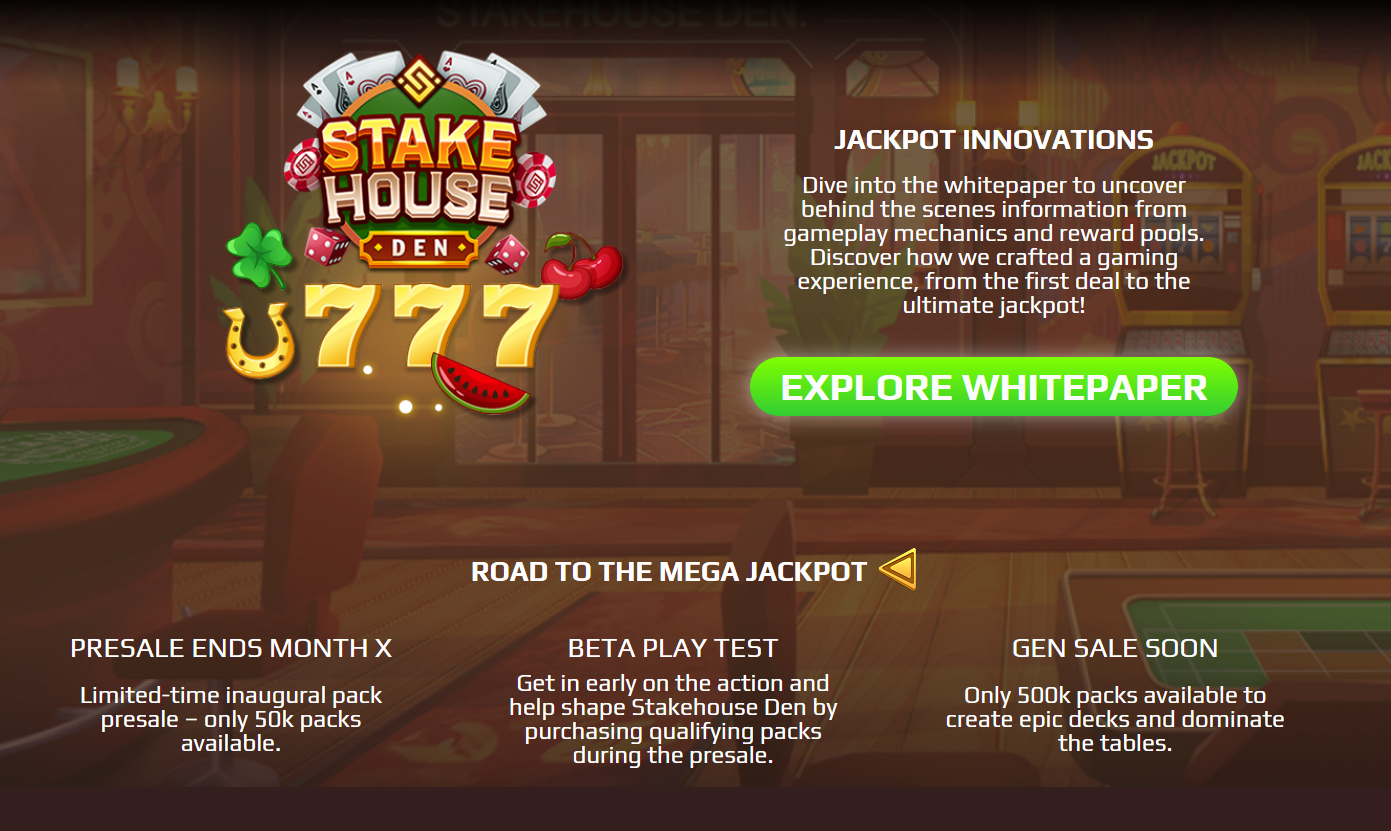
In the dynamic world of web3 gaming, Stakehouse Den introduces an elegant and well-structured tokenomics model for their Lady Luck Packs—a compelling blend of accessibility, exclusivity, and long-term ecosystem support.
At launch, 200,000 Lady Luck packs will be distributed through three thoughtfully designed phases:
-
Presale: A limited release of 25,000 packs offered at a favorable rate of 2 SCRIPT (or 2,000 CREDITS), giving early adopters a pricing edge and exclusive access. This phase wraps up on January 31, 2025—a clear timeline that injects urgency and reward for community supporters.
-
General Sale: Open to all players, this stage offers 75,000 packs priced at 4 SCRIPT (or 4,000 CREDITS), expanding reach while maintaining fair market value.
-
DAO Allocation: The largest tranche—100,000 packs—is reserved for the Arcade Colony DAO, underscoring the project’s commitment to sustainability and strategic growth. Of these, up to 25,000 packs are earmarked specifically for marketing and promotional efforts.

As an expert observing the strategy, I appreciate how this allocation balances four critical considerations: community loyalty, broad engagement, decentralized governance, and future-oriented incentives. The presale rewards early backers without over-privileging them, while the general sale ensures wider participation. The DAO’s significant share provides a governance-driven safety net to reinforce and expand the ecosystem.
In summary, Stakehouse Den’s Lady Luck Pack tokenomics skillfully blends fair distribution—and thoughtful pricing tiers—with long-term ecosystem stewardship. It’s a blueprint for how web3 gaming projects can scale responsibly, engage communities meaningfully, and foster sustained growth through governance-aligned incentives.